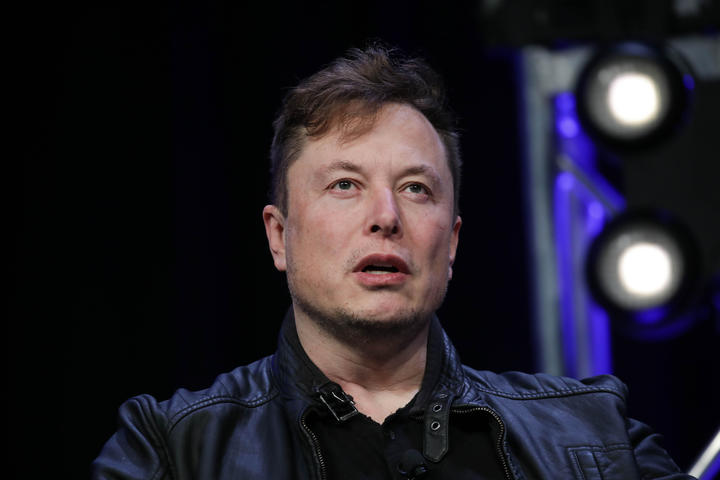
Explained: What happens next in the Musk-Twitter saga

Tesla CEO Elon Musk and Twitter are bracing for a legal fight after the billionaire on Friday (July 8) said that he was abandoning his $44 billion bid for the social media company.
Twitter has termed Musk’s withdrawal of offer as “invalid and wrongful” and vowed to challenge him in court to uphold the agreement. Shares of Twitter slid more than 9 per cent on Monday.
“Twitter has breached none of its obligations under the Agreement,” the attorneys of the social media company said in a letter to Musk’s lawyers that was included in a securities filing on Monday.
“Twitter demands that Mr Musk and the other Musk parties comply with their obligations under the Agreement, including their obligations to use their respective reasonable best efforts to consummate and make effective the transactions contemplated by the Agreement,” the letter added.
Also read: 48,000 per cent increase in demands to remove content from Twitter: Report
The stage is set for a court fight and here’s is what could happen next:
Why is Musk backing out?
There are many reasons why the Tesla chief is backing out of the deal, but the primary could be his mistrust with Twitter’s information about bots. On Friday, Musk, alleged that Twitter has failed to provide enough information about the number of fake accounts it has.
Twitter said last month that it was making available to Musk a firehose of public raw data on hundreds of millions of daily tweets. But Musk’s lawyers have argued that the company was providing Musk with sometimes incomplete or unusable information and less data than it offers some of its big customers.
Twitter said last week it uses a mix of public and private data to determine the amount of spam. Private user data isn’t available publicly and thus isn’t in the data firehose that it gave Musk. That would include IP addresses, phone numbers and location. Twitter said such private data helps avoid misidentifying real accounts as spam.
Twitter has said for years in regulatory filings that it believes about 5 per cent of the accounts on the platform are fake. But on Monday Musk continued to taunt the company, using Twitter, over what he has described as a lack of data.
How Twitter has responded
Twitter, in turn, declared its intent to sue Musk. The company could have pushed for a $1 billion breakup fee that Musk agreed to pay under these circumstances. Instead, it looks ready to fight to complete the purchase, which the company’s board has approved and CEO Parag Agrawal has insisted he wants to consummate.
The chair of Twitter’s board, Bret Taylor, on Friday tweeted that the board is committed to closing the transaction on the price and terms agreed upon with Musk and plans to pursue legal action to enforce the merger agreement. We are confident we will prevail in the Delaware Court of Chancery.
The trial court in Delaware frequently handles business disputes among the many corporations, including Twitter, that are incorporated there.
Who’s going to win?
It’s almost impossible to predict the outcome of any protracted legal battle. But law and business experts believe Twitter likely has the stronger case.
Morningstar analyst Ali Mogharabi noted that Twitter has described its estimate of fake and spam accounts for years in regulatory filings while explicitly noting that the number might not be accurate given the use of data samples and interpretation.
Given the current market conditions, Mogharabi said, “Twitter may also have a solid argument that the layoffs and firings of the past weeks represent an ordinary course of business.”
“Many technology firms have begun to control costs by reducing headcount and/or delaying adding employees,” he said. The resignations of Twitter employees cannot with certainty be attributed to any change in how Twitter has operated since Musk’s offer was accepted by the board and shareholders.
The case could also end in a settlement, for instance with the two sides negotiating a lower price. If Musk wins, there’s also the question of the $1 billion breakup fee. He can certainly afford it, but will he want to pay?
What’s Twitter’s fate now?
The Musk saga has been, to put it mildly, a distraction for Twitter’s workers, executives and even users. Some employees have quit, while others were laid off or fired. Job offers have been rescinded and discretionary spending curtailed.
“For Twitter, this fiasco is a nightmare scenario,” Wedbush analyst Dan Ives, who follows the company, wrote on Monday. He said the result would be an Everest-like uphill climb for Parag & Co. given concerns over employee morale and retention, advertiser concerns and other challenges.
Also read: Twitter to sue Elon Musk after he pulls out of $44 billion buy-out deal
Twitter itself is unlikely to go anywhere regardless of whether or not it changes hands. But if the turmoil continues it could scare away advertisers. If too many engineers and other employees leave, the platforms quality could suffer as well.
The one bright spot is that if (Twitter) is ultimately victorious in the courts, it could potentially take north of the $1B in break-up fees that Musk could have to pay, said CFRA Analyst Angelo Zino.
(With inputs from agencies)


